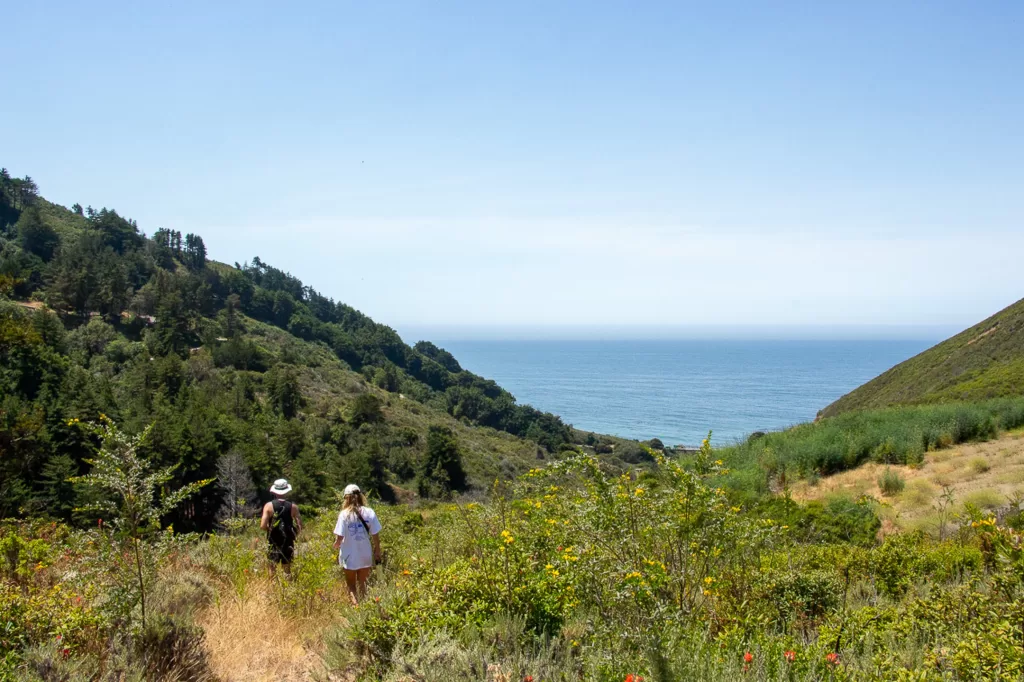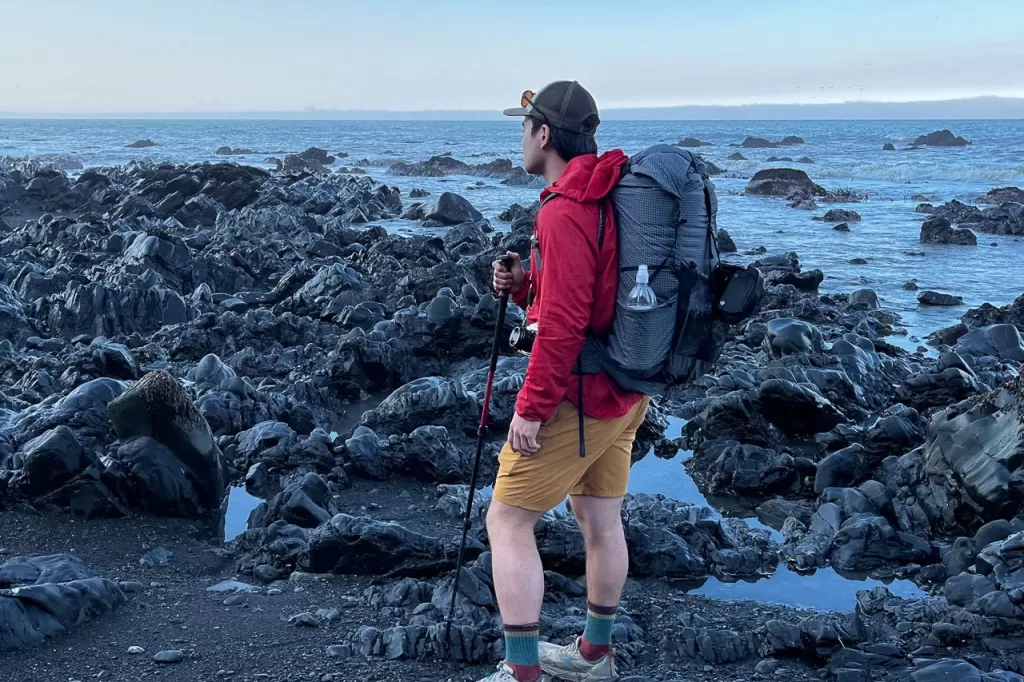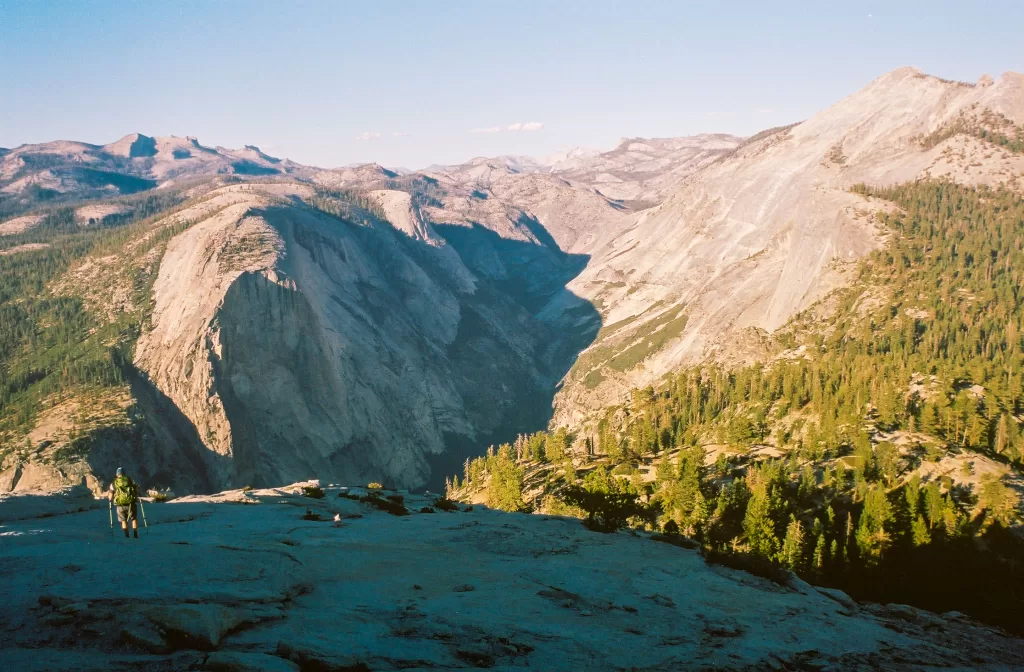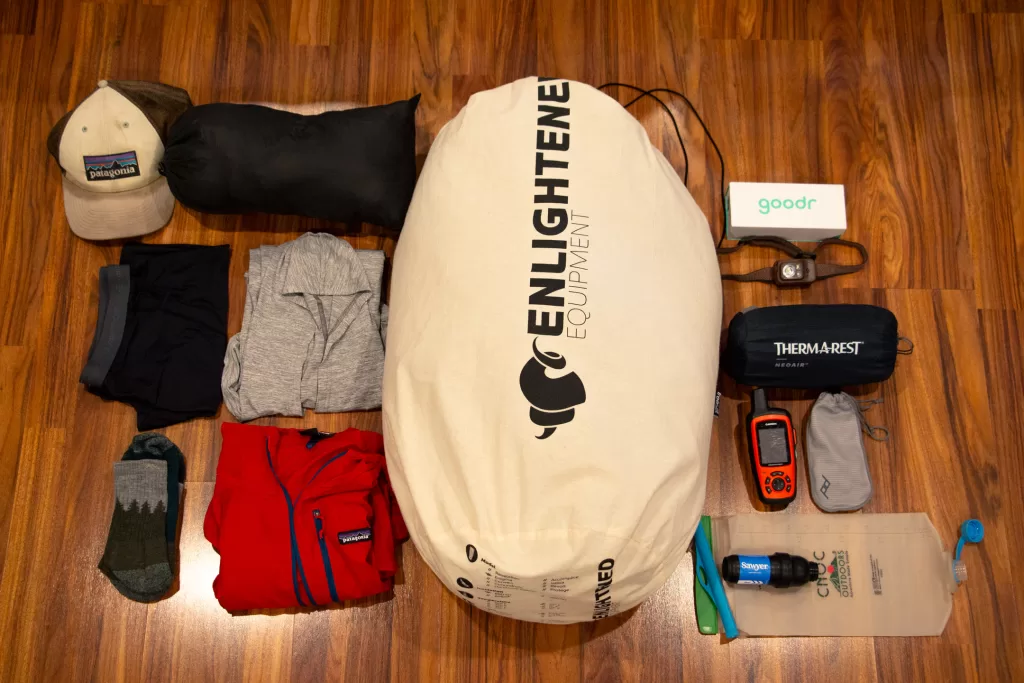If you’re heading out on trail, it’s important that you carry the hiking 10 essentials. These 10 different categories of items will help ensure that you’re prepared for common outdoor challenges, including minor injuries, changes in weather, and delays. While you’ll want to tailor what you bring according to the length, duration, and intensity of your trip, make sure you have all the categories below covered before heading out.
Food and Nutrition
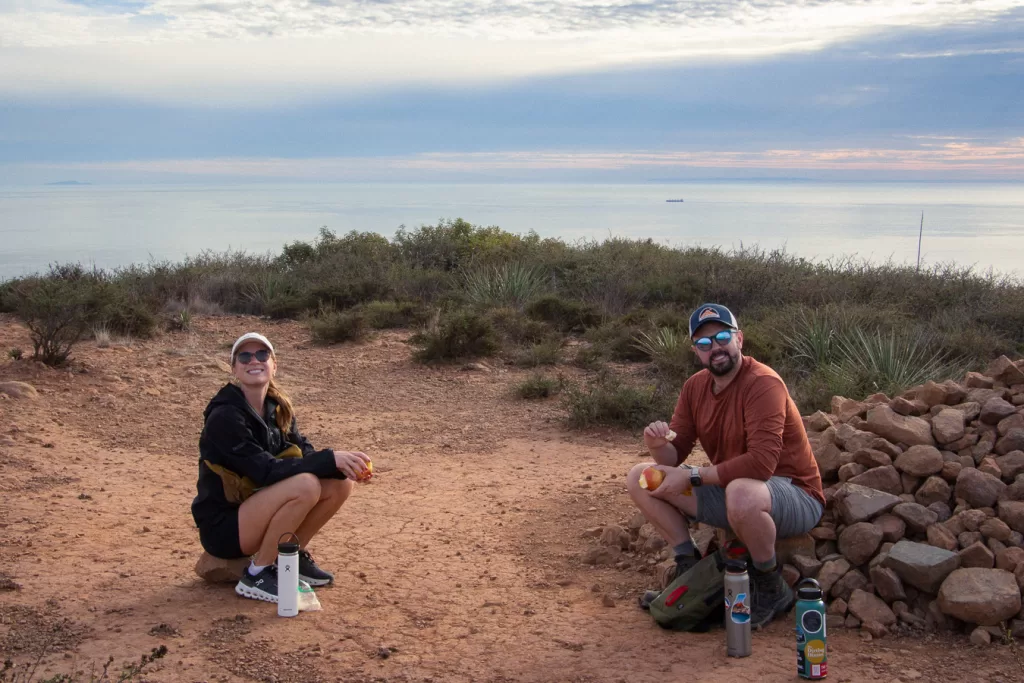
You might be out on trail longer than you expected. That’s why you should always bring extra food just in case. Try to stick to no-cook items that are salty and high in carbs and/or protein. Foods like jerky, energy bars, trail mix, dried fruit, and energy chews are good choices.
Water and Electrolytes
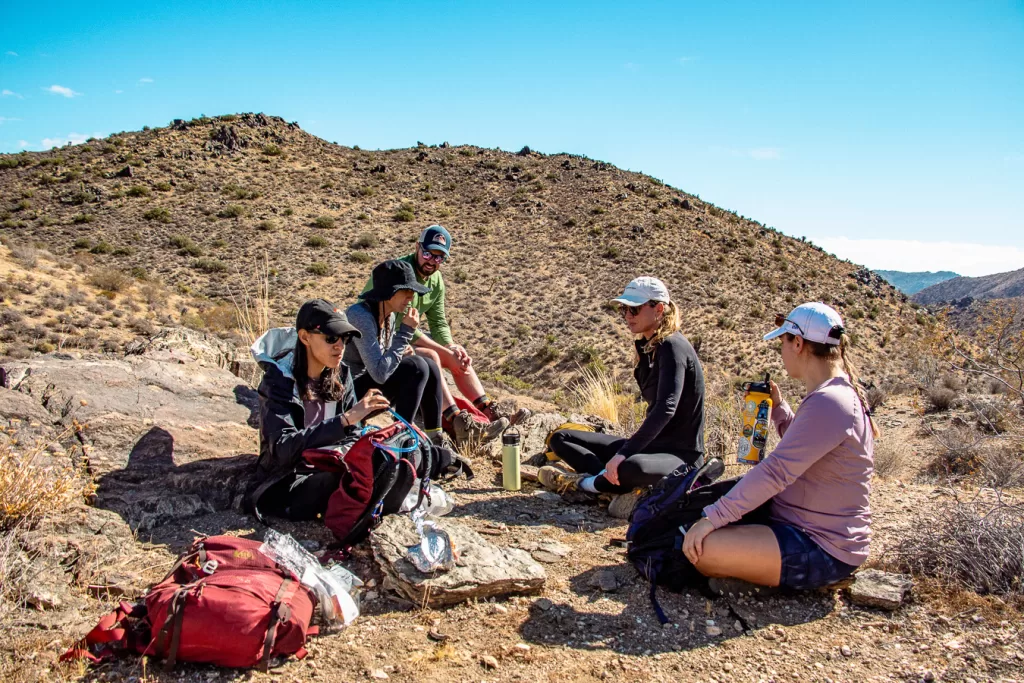
Carrying enough water is crucial when hiking and might be the most important of the 10 essentials. The last thing you want is to get caught deep in the wilderness with an empty bottle. Whenever you’re doing physical activity outside, make sure to bring and drink plenty of water. It’s recommended that you drink half a liter of water for each hour you’re hiking, but you may need more if it’s a hot day, you’re at altitude, or you’re physically pushing yourself. Electrolyte supplements, like Nuun or LMNT are also good to have on hand. These help you replenish salts and minerals lost due to sweat and keep your electrolytes balanced.
Consider bringing a filter if you’re in an area with fresh bodies of water. That way, you can easily purify and replenish your supply if you run out. I like the Sawyer Squeeze, as it’s small, easy to use, and removes 99.99999% of bacteria and protozoa from the water. Plus, Sawyer donates 90% of its profits to clean water access.
Emergency Shelter
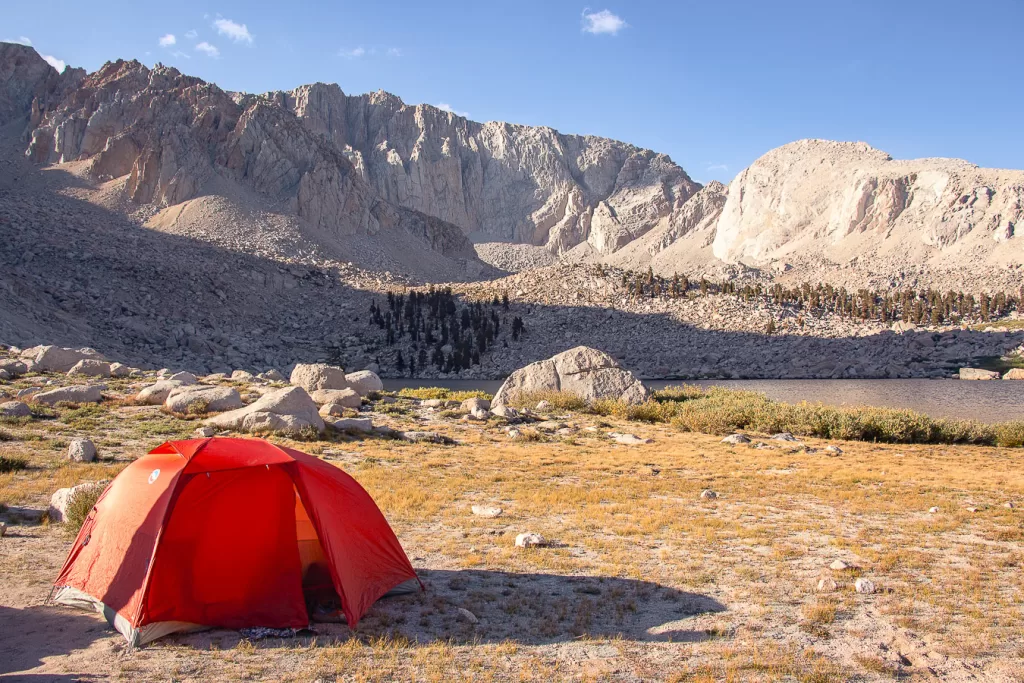
You never know what might happen when out on trail. Adverse weather, injury, or other unforeseen circumstances could force you to stay out much longer than you originally intended. While an emergency shelter is the easiest of the hiking 10 essentials to overlook, it could potentially save your life if you’re forced to spend a night in the wilderness. A tent isn’t always the most practical option—a tarp, emergency bivy, or space blanket are all lightweight alternatives that also pack small. Whichever you choose, make sure you know how it works and how to use it before heading out.
Extra Clothing and Layers
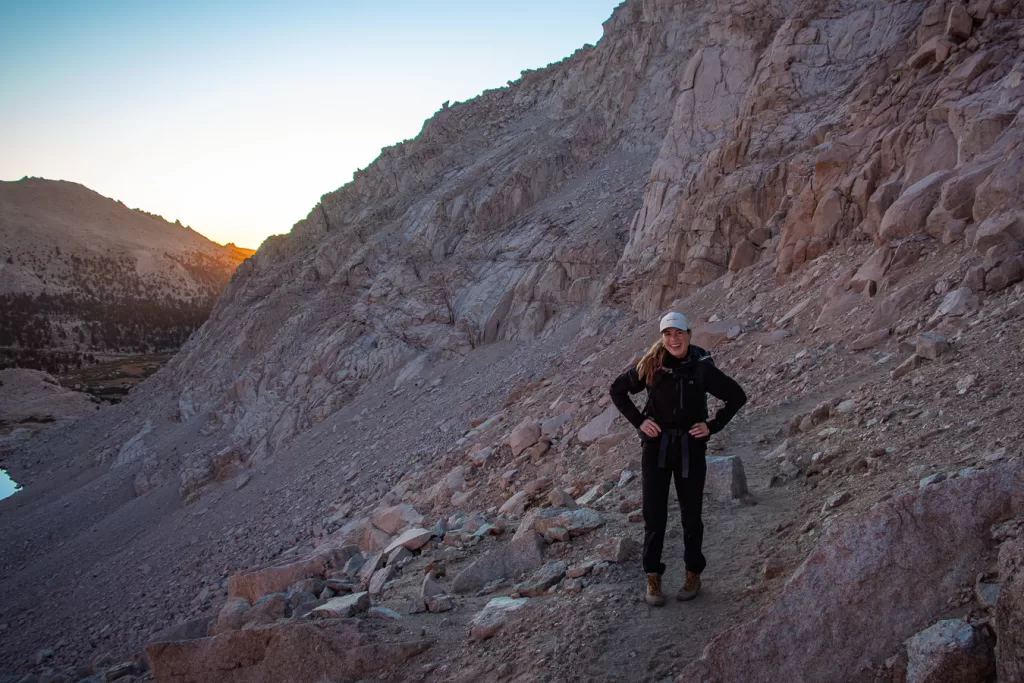
Conditions out on trail can change drastically in the blink of an eye. When out exploring, it’s imperative to pack extra clothing and layers to keep yourself safe and warm during a potential change in weather. Before leaving, asses the worst conditions you might experience and pack accordingly. Good items to keep in your bag include a rain jacket, an insulating layer, extra socks, gloves, and warm headwear.
Fire Starter
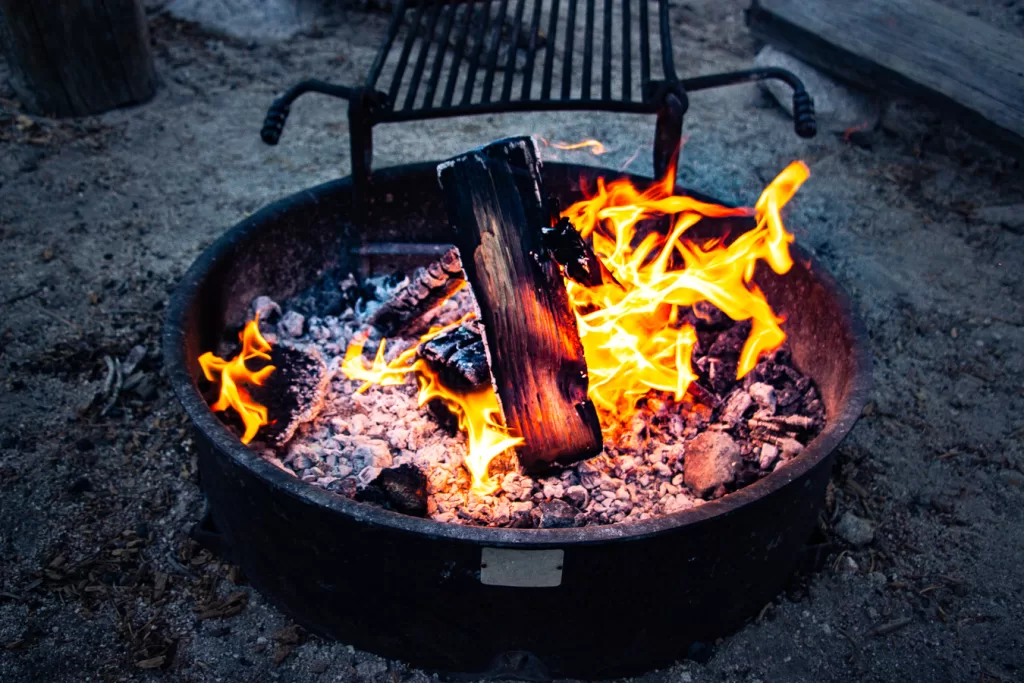
Fire can serve as a source of heat and signal rescuers that you need help. Be sure to include a fire starter in your pack whenever you’re outdoors. While a small lighter is the easiest and most reliable option, waterproof matches work well also. Before you leave, familiarize yourself with local fire rules and restrictions.
Navigation
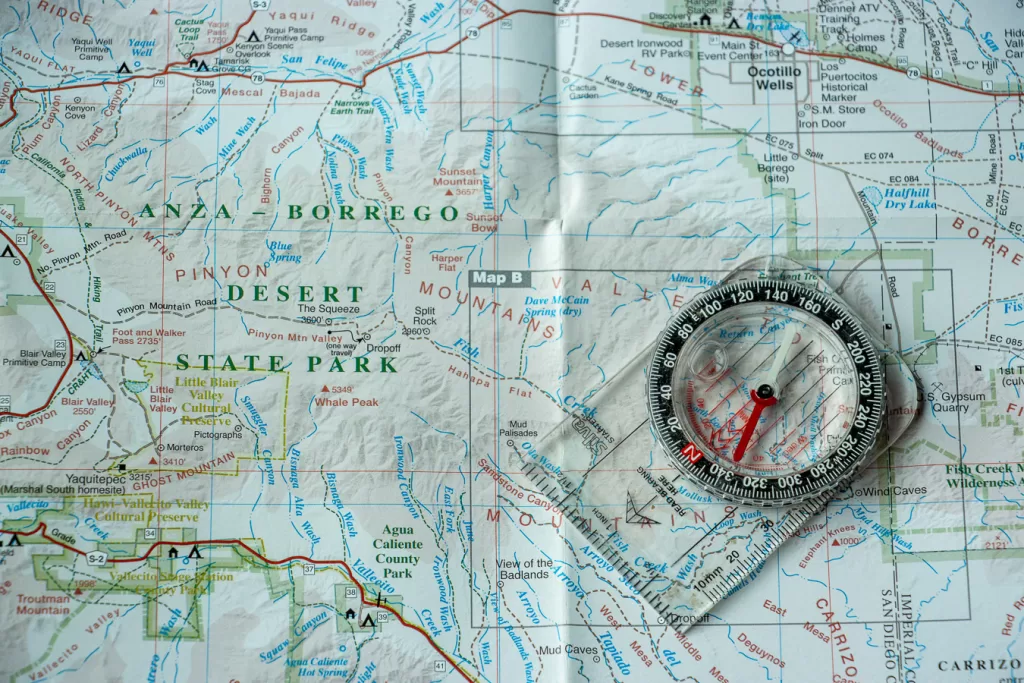
When heading out on trail, having tools to help you navigate is a must. Before leaving, download any maps and trails so that they work offline. You also can bring a satellite phone, like the Garmin InReach Mini 2, for added safety and protection.
In addition to your navigational devices, you also should bring a physical map and compass, as well as knowledge on how to use them. That way, should something happen to your electronics, you can still figure out where you are and where you need to go.
First Aid
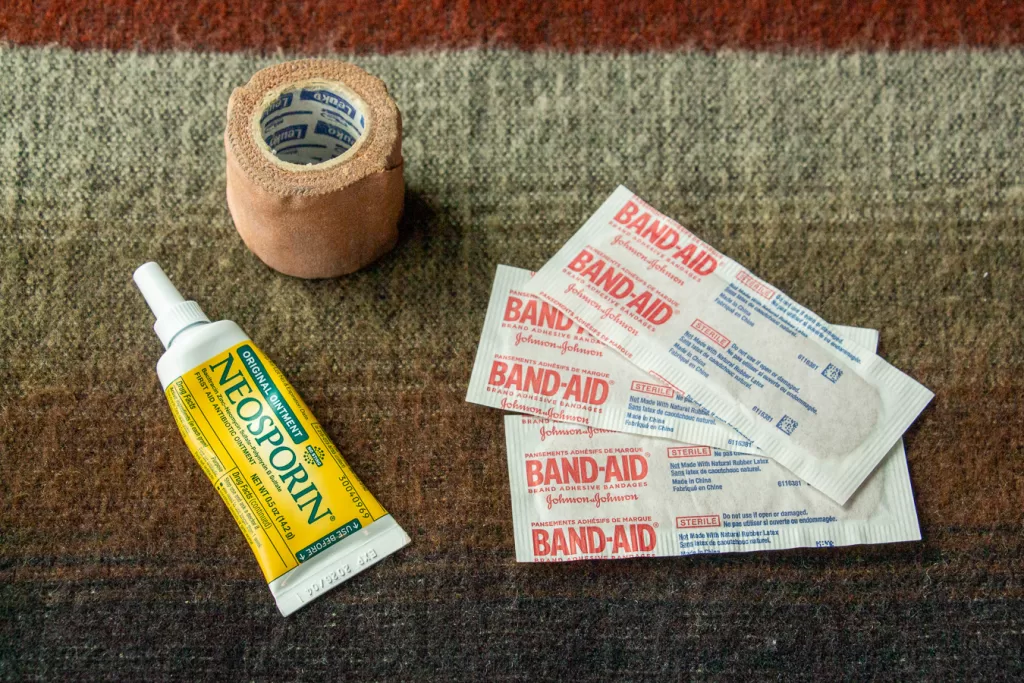
A simple first-aid kit is important to keep on you whenever you head outdoors. While a pre-made kit is convenient, you should take the time to modify it to fit your needs. At a minimum, your kit should include bandages, antibiotic ointment, gauze pads, blister treatment, adhesive tape like leukotape, and over-the-counter meds like anti-inflammatory drugs, antihistamines, and antacids.
Sun Protection
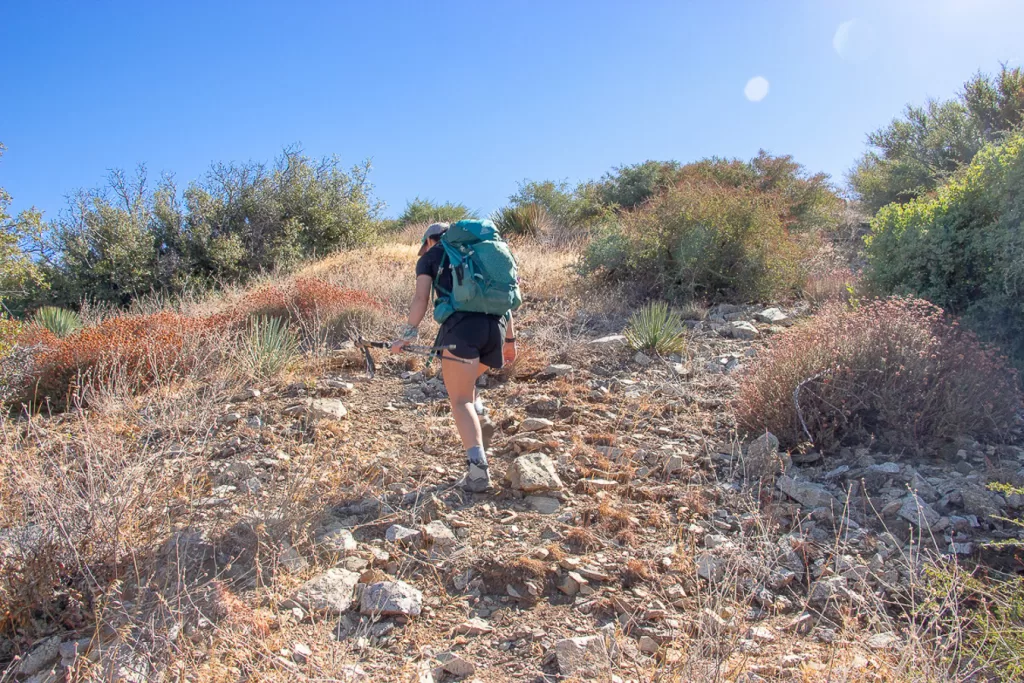
Sun exposure is highly likely when out on trail so bring sun protection to avoid damaging your skin and eyes. Sunscreen is a must, and make sure to reapply every two hours. I personally like the Sun Bum Mineral SPF 50 Sunscreen Lotion. Unlike chemical sunscreens which absorb into the skin, this mineral sunscreen creates a physical barrier. It’s also lightweight and rubs in decently well.
Sunglasses are also especially important to protect your eyes. Goodr is my go-to brand, as they are lightweight, come in a wide array of styles and colors, are 100% polarized, and start at only $25.
Hats, pants, and long sleeve shirts are also great ways to provide additional protection from the sun.
Flashlight or Headlamp
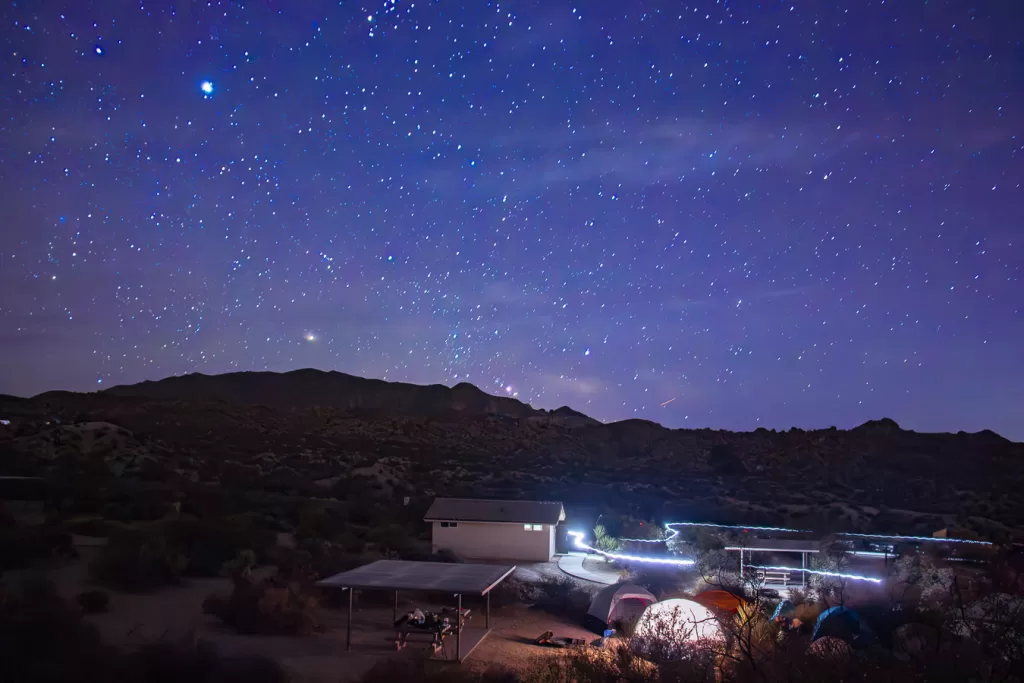
You never know when circumstances will force you to stay out past dark, so always carry a flashlight or headlamp with you. Headlamps are recommended as you can use them hands-free. I like the Black Diamond Spot 400-R Rechargeable LED Headlamp because it’s plenty bright for almost all situations, has several settings (including a red light), and is rechargeable. Whatever you bring, always pack extra batteries.
Knife and Repair Kit
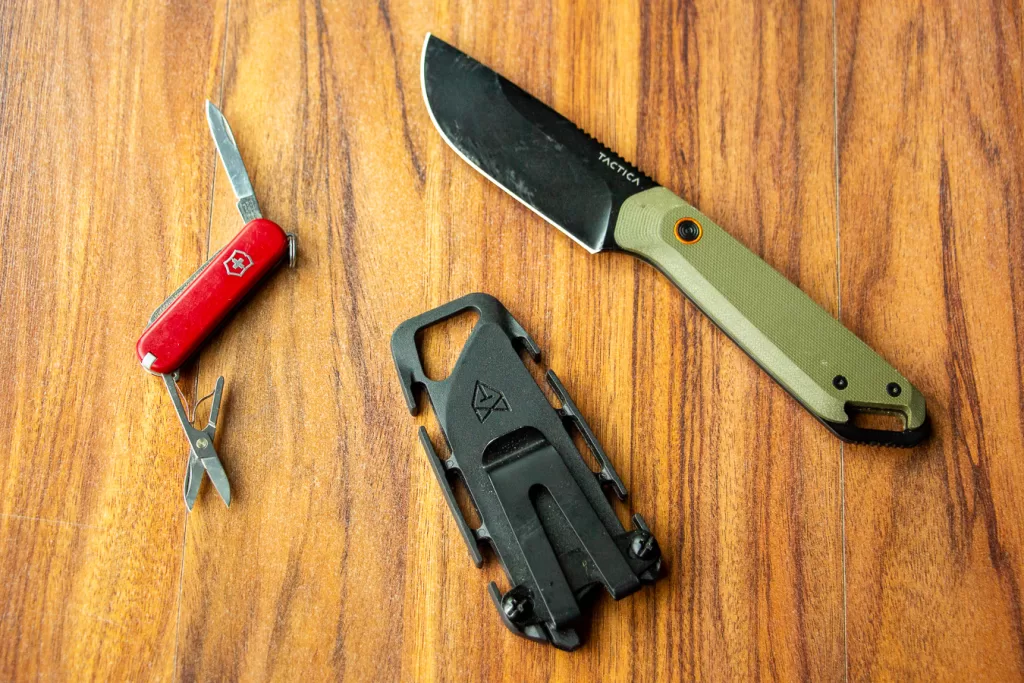
Knives are a great multi-use tool and are helpful in a wide range of situations, from cooking to emergency needs. When heading outdoors, make sure you have some sort of blade on you. It doesn’t need to be excessive—even a small Swiss Army Knife works great. However, adjust accordingly depending on what you plan on doing.
You should also bring a simple repair kit just in case something breaks or rips in the backcountry. Duct tape, tenacious tape (great for fixing rips and holes in clothes and sleeping pads), and an extra o-ring for your water filter are all important items to have. Since duct tape is bulky, I like to wrap a section around my hiking pole so I don’t have to bring the whole roll.
Carrying the hiking 10 essentials with you will help make sure that you’re ready and prepared for what the outdoors might throw at you. If you’re looking for extra help choosing the right gear, please reach out! We at GoForth are experts at helping you plan your outdoor adventure, and we’d love to help make sure your time outside is a success. Click on the button below to learn more about our offerings, and contact us if you’re ready to take the first step toward a life outdoors!

